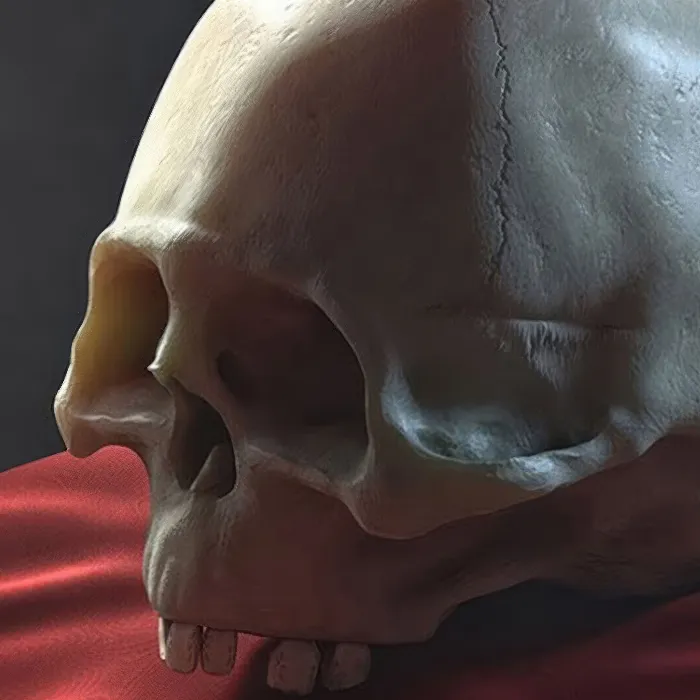Sculpting in CINEMA 4D may initially appear challenging, especially when you want to create complex shapes like dragons or human figures. However, with the right approach and knowledge of using basemeshes, you can unleash your creativity and make your projects more effective. In this guide, you will learn step by step how to find and use basemeshes for your sculpting in CINEMA 4D.
Key Insights
- The Object Manager is the most important area for sculpting.
- Basemeshes are pre-made meshes that serve as a starting point for your modeling.
- You can use or modify existing materials to create the impression of clay or other materials.
Step-by-Step Guide
First, you should open CINEMA 4D and familiarize yourself with the sculpting layout.
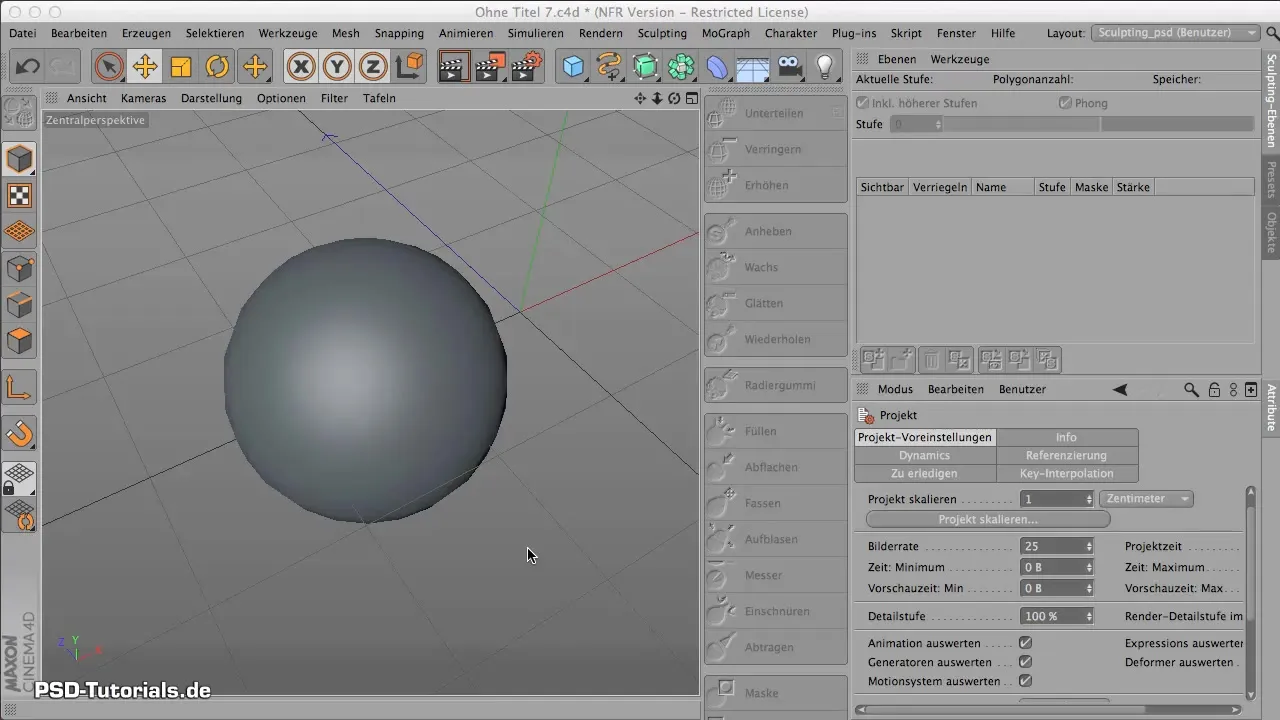
To switch between the sculpting layout and other areas, use the Object Manager. It is crucial for your navigation within your project. Here you'll find everything related to sculpting.
Start by selecting a simple mesh. In this case, a sphere works well. Disable the sphere for the editor to gain better visibility.
Go to the settings for the sculpting layers and make sure to select the appropriate objects. In the middle of the window, you will find a collection of presets available to you.
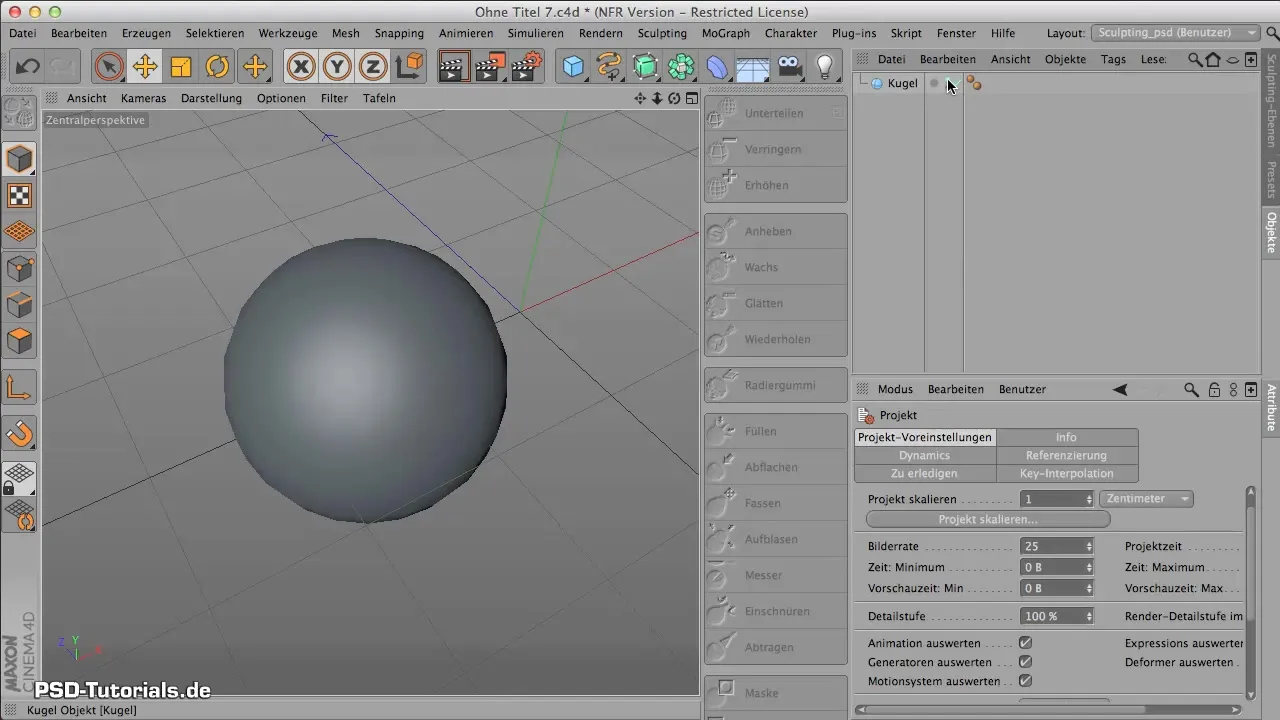
Open the folder that contains the basemeshes. There, you will find various pre-made meshes that are already optimized for sculpting.
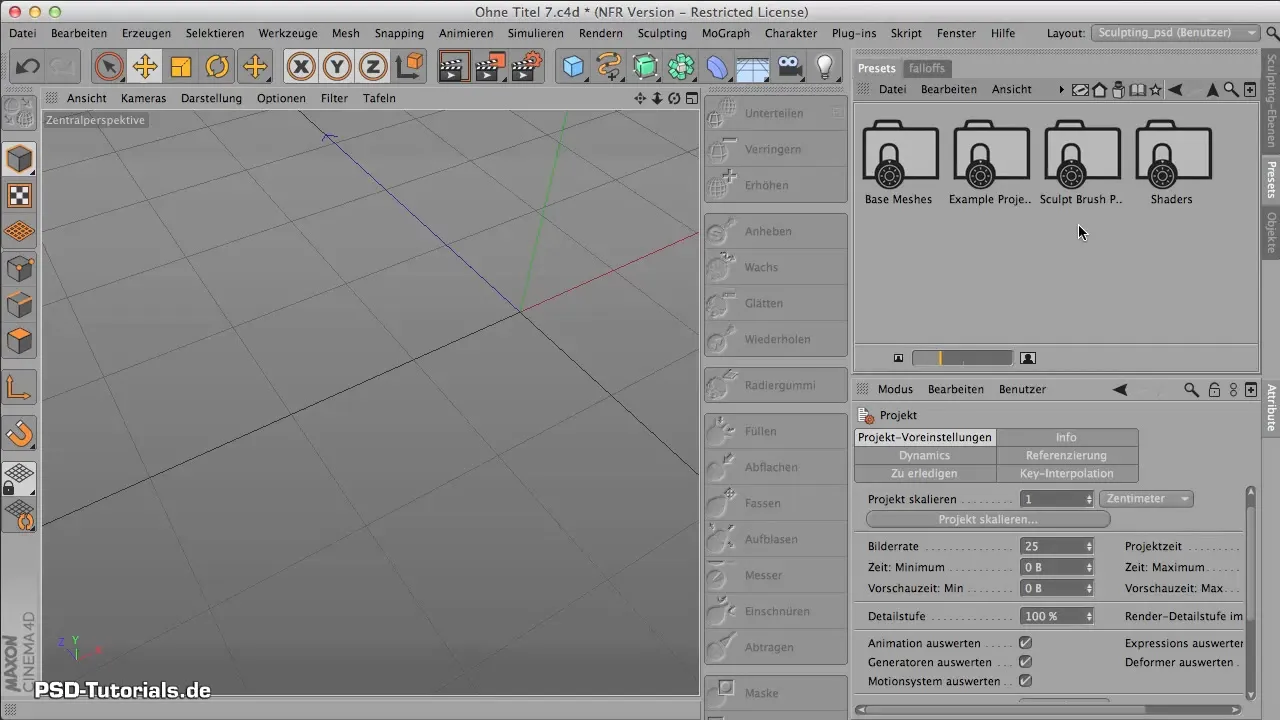
Select the smallest basemesh, for example, the elephant, and drag it into your project. Note that this mesh is initially low resolution, making it easier for you to edit further.
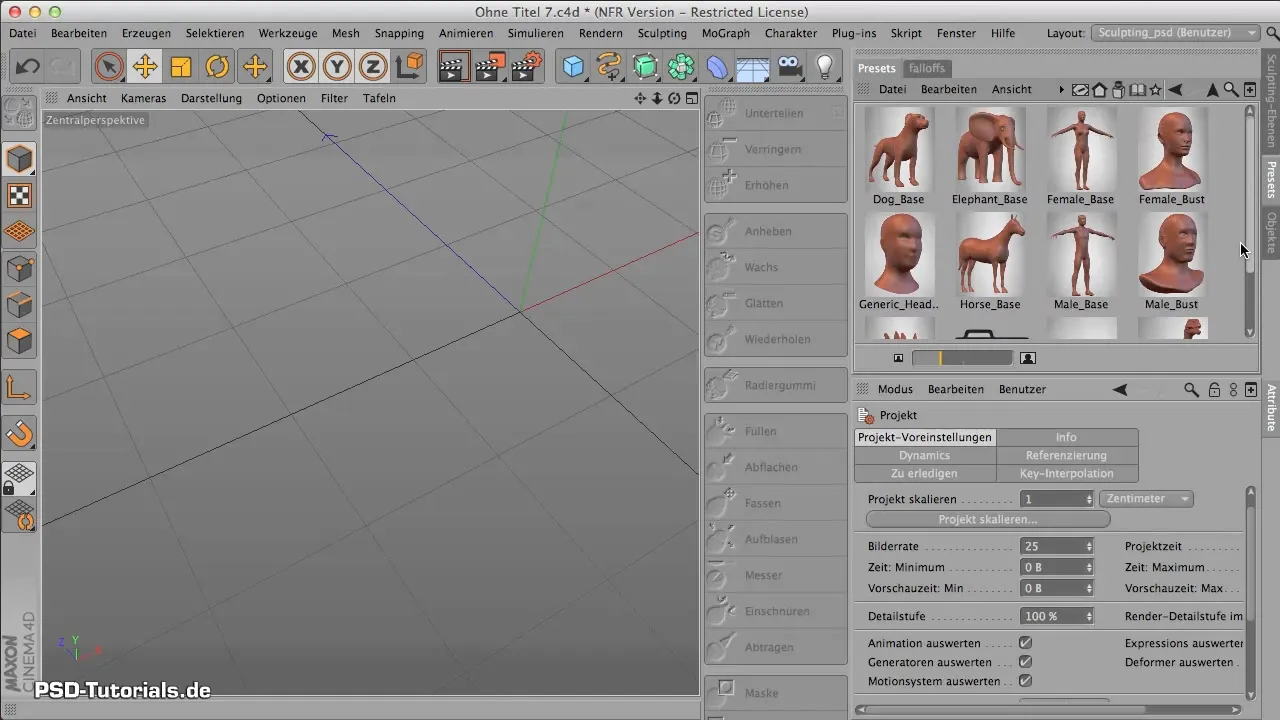
To optimize the mesh, you need to subdivide it. This is done similarly to the sphere, to obtain enough geometry for further adjustments.
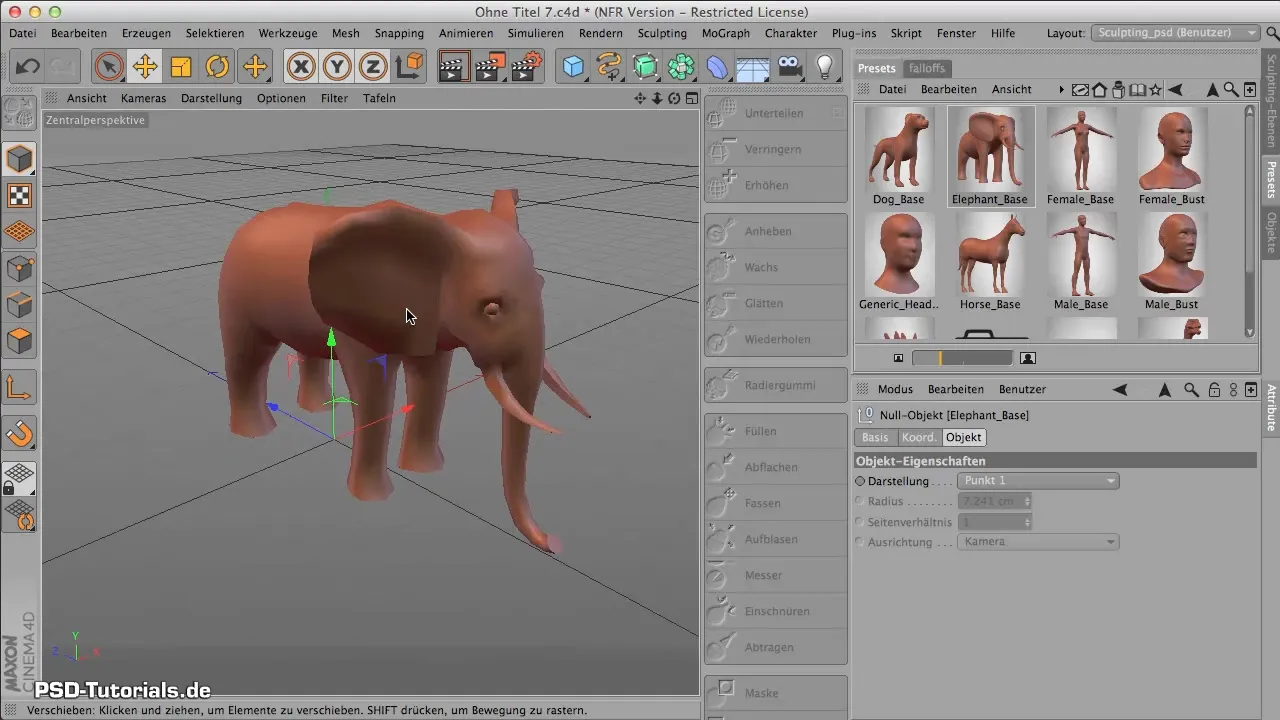
After you have subdivided the basemesh, you can sculpt the elephant to your liking. Make sure to edit all parts of the object as a single unit to ensure seamless modeling.
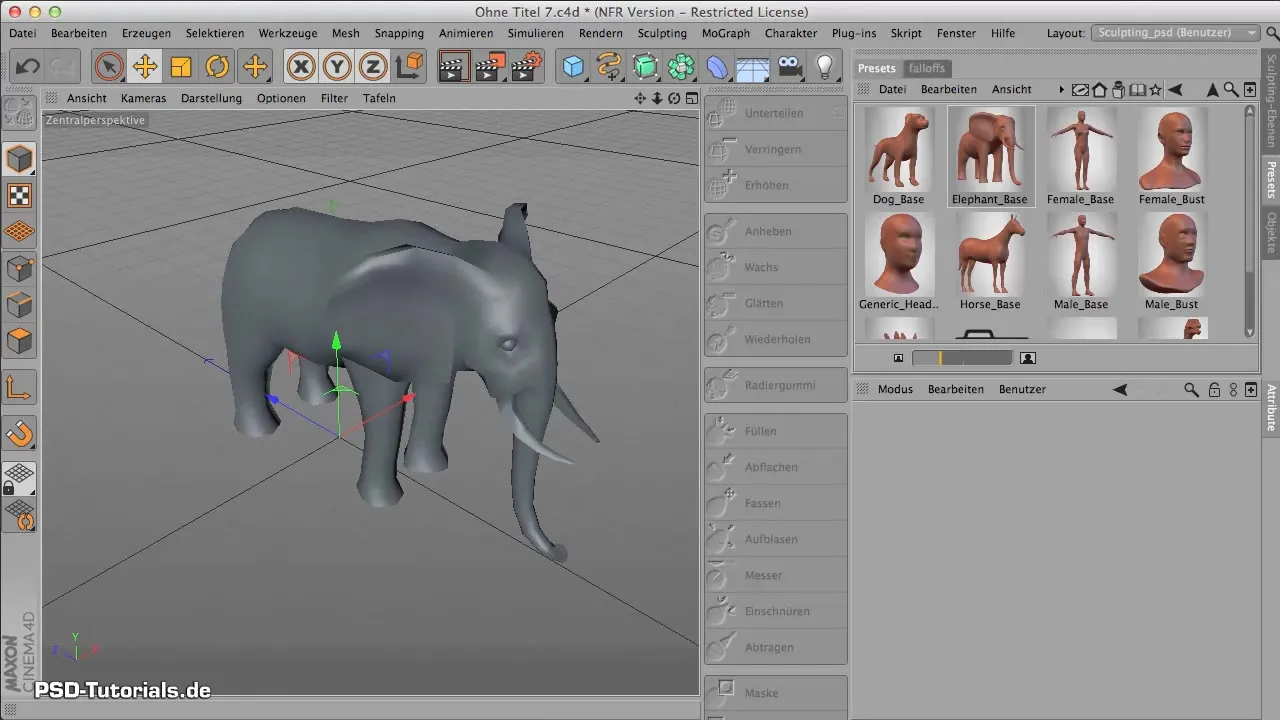
Another point is that the material of the mesh initially appears in a clay-like color. You can delete or adjust this material based on your preferred appearance. You should strategically place the cursor to decide whether you want to edit the entire object or just the material.
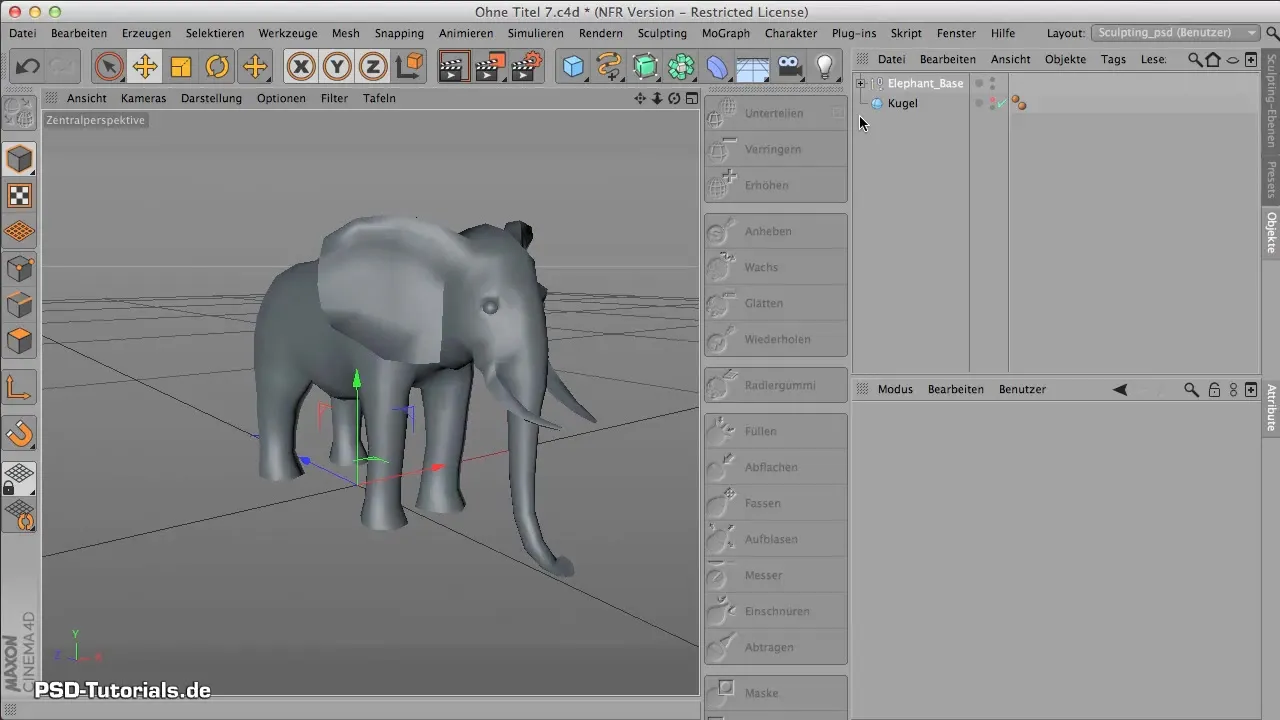
The eyes of the elephant are separate objects. You should ensure that your sculpting is done in such a way that you do not have to work with many individual parts, but rather model everything as a single piece.
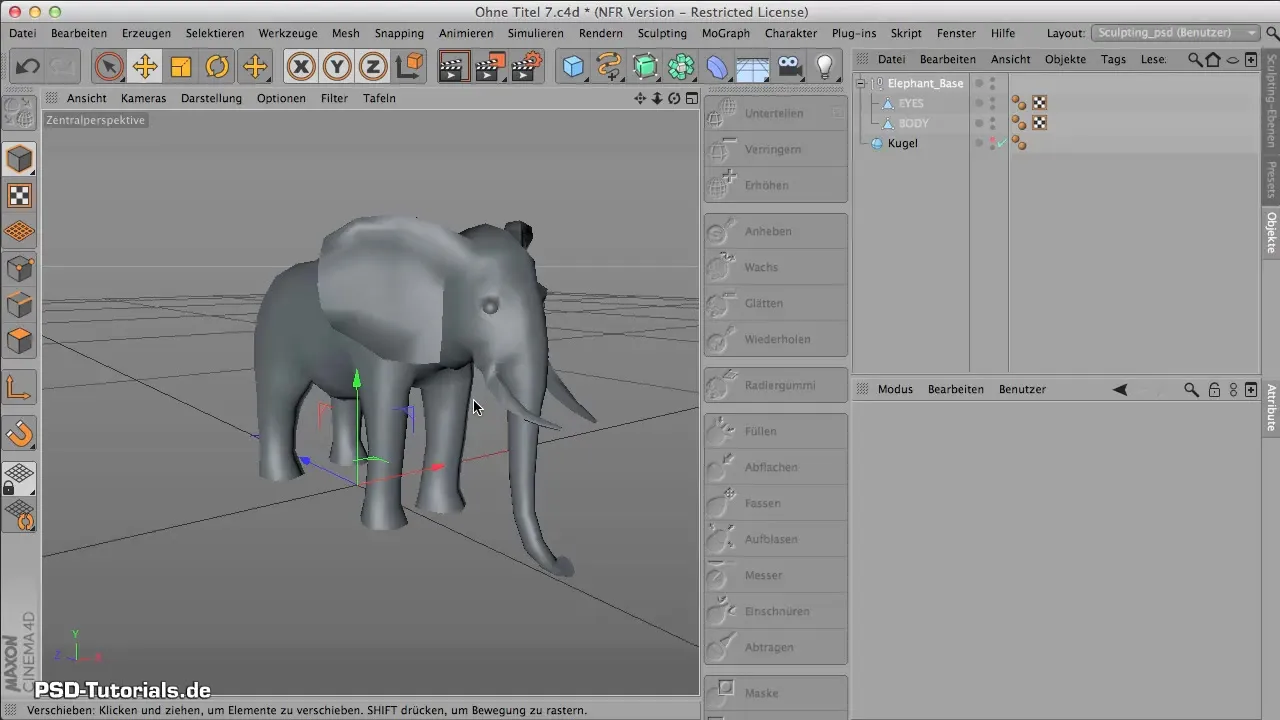
Explore the various presets that CINEMA 4D offers you. These are a valuable resource to optimize your workflow and ease the creative process.
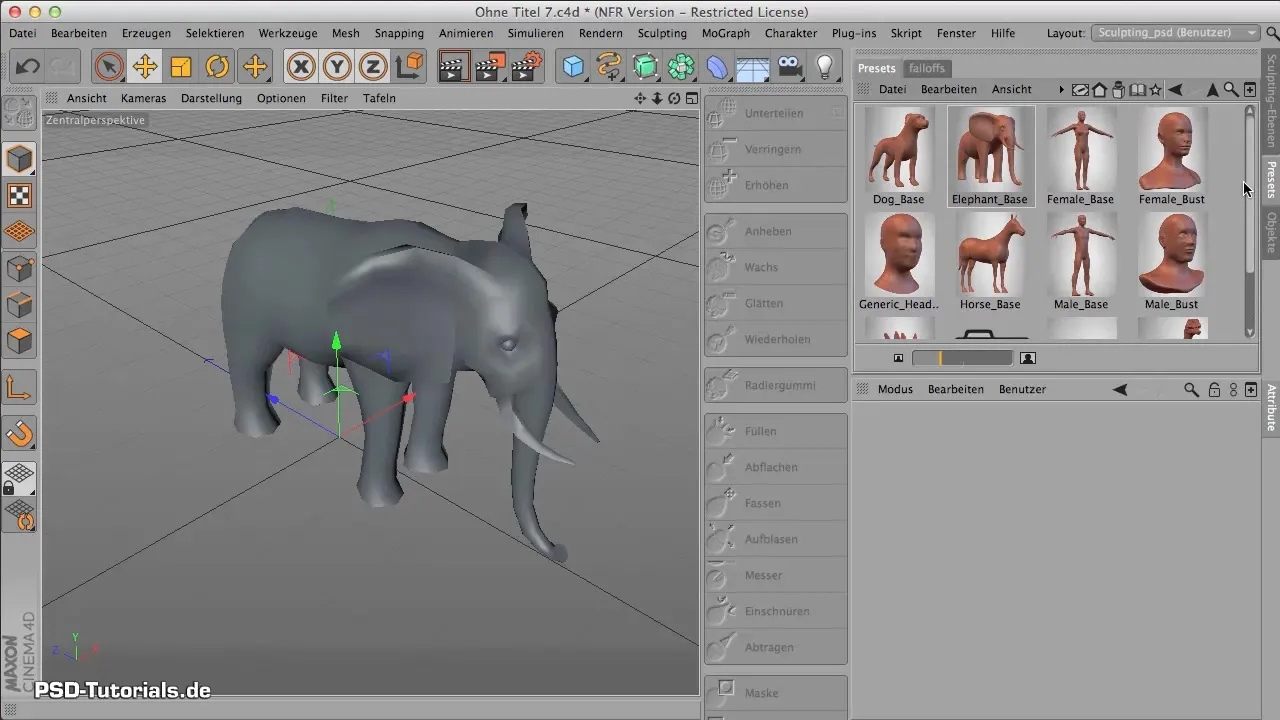
Additionally, you can also load other basemeshes that may not be included by default in CINEMA 4D to further individualize your models.
Summary – Basics of Sculpting in CINEMA 4D – Basemesh Creation
Working with basemeshes in CINEMA 4D opens up a new dimension in your creative process. With the right techniques and a thorough understanding of the software, you can create and adjust your 3D models more quickly and efficiently.
Frequently Asked Questions
How do I find the basemeshes in CINEMA 4D?You can find the basemeshes in the preset folder within the sculpting layouts.
Can I create my own basemeshes?Yes, you can create your own meshes and use them as basemeshes.
How do I delete materials from a mesh?You can selectively delete materials by moving the cursor to the appropriate spot.
Can I customize basemeshes?Yes, you can customize and further edit basemeshes at any time.
Are there additional resources for sculpting in CINEMA 4D?Yes, there are many tutorials and forums that can help you improve your sculpting skills.
